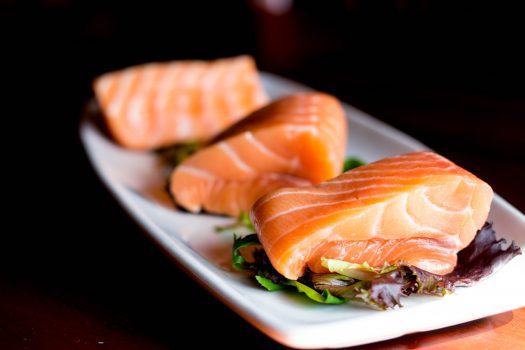
This article is part of a series called “Supplements After 50”. You can view the first 3 posts here, here, and here.
There are lots of reasons to take supplements. I take a bunch. Because of our diet, lifestyle, and the natural aging process, middle-aged guys like me sometimes need to fill in the gaps with supplements. Hopefully this series will help you think about the gaps you might have.
Why Take Fish Oil?
The benefits of fish oil have been studied for decades. In the ’70’s researchers noticed that Inuit people, who have a history of eating fatty meat and fish, didn’t seem to have the same coronary heart disease as would be expected. It was theorized that the fish oil in their diet protected them from heart disease.[1] Even though that theory has largely been debunked, the research surrounding it has given us reason to continue to pursue a diet rich in omega-3 fatty acids, found in fish oil.
Fish oil, or, more specifically omega-3 fatty acids, have been shown to reduce inflammation, reduce sudden cardiac mortality (by 45%!!!) and all-cause mortality by 20%. In addition – and this is the big one for me – omega-3 fatty acids can reduce triglyceride levels by up to 30-50%.[2]
I’ve been plagued with high cholesterol / triglycerides since I was in my 20’s. My grandfather had a terrible time with his cholesterol, leading to a series of debilitating strokes which eventually led to his institutionalization and death by age 66. Not me.
And, finally, fish oil works as a pain reliever. In an amazing series of studies, fish oil was found to be as effective as prescription NSAID (nonsteroidal anti-inflammatory drugs) medications, like ibuprofen. In one study of 250 participants, “[f]ifty-nine percent discontinued to take their prescription NSAID medications for pain. Sixty percent stated that their overall pain was improved, and 60% stated that their joint pain had improved. Eighty percent stated they were satisfied with their improvement, and 88% stated they would continue to take the fish oil.”[3] I get beat up a lot, both on the rugby field and in the gym. If I were to scarf down a handful of ibuprofen or Tylenol every time I was beat up, my stomach would look like Swiss cheese.
Sources of Omega-3
I’ve used fish oil and omega-3 almost interchangeably so far in this post, but there really is a difference. There are lots of different places to get omega-3’s, and fish oil is just one of them.
There are different types of omega-3’s as well. ALA, DHA and EPA are all forms you’ve probably seen on foods and supplements. DHA and EPA are easier for your body to work with. It’s harder for your body to work with ALA, especially plant-based. [4]
Fish are a great source of omega-3’s, thus the explosion of fish oil supplements. It’s always great to get what you need from your diet, rather than supplements, so if you’re a pescatarian, you’re in luck: tuna, salmon, sardines, you name it; they’re good sources of omega-3. In fact, I’ve heard Tim Ferriss tout Wild Planet Canned Sardines in Olive Oil (which itself has omega-3’s) for breakfast. Personally, I buy the multi-packs of tuna at Costco and eat them straight out of the can. And, I eat sardines with breakfast each morning.
Many nuts are high in omega-3’s. Walnuts, flaxseed, hemp seeds and cashews all contain AHA (which, again, isn’t very efficient, but helpful nonetheless). I buy large containers of cashews at Costco, and bags of walnuts at Kroger. A handful of walnuts are a part of my breakfast each morning, and I carry a handful of cashews with me during the day to snack on.
A lot of dairy products either come with omega-3 fatty acids naturally, or have it added during packaging / production. Eggs, milk and yogurt often contain modest amount of omega-3’s.
Also, leafy vegetables in the brassica family such as spinach, Brussels sprouts, cauliflower and broccoli contain omega-3’s.
Finally, if your diet isn’t providing what you want you can take a supplement. There’s a lot of “snake oil” fish oil supplements out there, so be careful what you buy. One concern is the mercury level found in fish, and its concentration in fish oil supplements. Labdoor has a nice comparison chart over at https://labdoor.com/rankings/fish-oil . Bodynutrition.org has another chart available at https://bodynutrition.org/fish-oil/.
Personally, due to affordability and accessibility, I use the Costco 1200 mg “One Per Day” fish oil (Amazon affiliate link http://amzn.to/2BW77EE). I take two per day, however.
Conclusion
First of all, this is the part where I tell you I’m not a nutritionist or dietician; I’m just telling you what I do for my health. Your mileage may vary.
Second, it’s been a while since I’ve had any blood work done, so it’s hard for me to give you any kind of before / after comparison after I started taking fish oil.
I can tell you that I don’t take ibuprofen any more for pain. I can also tell you that I’m confident that I’m doing what I can to keep my triglycerides in check, outside of taking a statin drug. The next time I have a checkup (hopefully first quarter of 2018) I’ll let you know.
Are you taking any kind of omega-3 supplement? If so, what?
References
[1] “Fish oil and the ‘Eskimo diet’: another medical myth debunked”, https://www.minnpost.com/second-opinion/2014/08/fish-oil-and-eskimo-diet-another-medical-myth-debunked
[2] “From Inuit to implementation: omega-3 fatty acids come of age.”, https://www.ncbi.nlm.nih.gov/pubmed/10852422
[3] “Omega-3 fatty acids (fish oil) as an anti-inflammatory: an alternative to nonsteroidal anti-inflammatory drugs for discogenic pain.”, https://www.ncbi.nlm.nih.gov/pubmed/16531187
[4] “Your Omega-3 Family Shopping List”, https://www.webmd.com/diet/guide/your-omega-3-family-shopping-list#1
They have several benefits and I would like to try some of them. I didn’t know they have this excellent benefits other than they are nutritious.